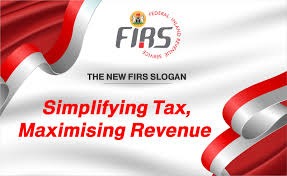
By Ed Malik, A | ed@ddnewsonline.com | posted 17th June, 2025
The Federal Inland Revenue Service (FIRS) has announced a notable shift in Nigeria’s taxation landscape, aimed at lightening the tax burden on armed forces personnel, low-income earners and small businesses, and also, raising corporate taxation policy, raising the minimum annual turnover for tax liability from N25 million to N50 million, while streamlining the system for efficiency and fairness.
Subscribe To The Best Team In Conservative, Business, Technology, Lifestyle And Digital News Realtime! support@ddnewsonline.com
This was disclosed during a stakeholders’ engagement forum in Kano on Saturday, that had in attendance leaders across multi-sectors, from business, academia, civil society, government officials and other key drivers of the economy. The meeting was aimed at reviewing the newly signed tax reform law and it implications for the people.
Speaking at the event, which was jointly organized by the Office of the Senior Special Assistant to the President on Community Engagement (Northwest) and the FIRS, Abdullahi Tanko Yakasai, Senior Special Assistant to the President on Community Engagement (Northwest), emphasized that the reforms are “Pro-people and pro-business”, aimed majorly at dispelling misinformation and enhancing public understanding of tax policies.
“There has been a lot of misunderstanding about the new tax law,” Yakasai stated. “This engagement is designed to clear the air and provide accurate information, especially on how revenues will be shared: 50 percent equally among states, 30 percent based on consumption levels, and 20 percent on population”,
Subscribe To The Best Team In Conservative, Business, Technology, Lifestyle And Digital News Realtime! support@ddnewsonline.com
Yakasai highlighted the key highlights and implications of the newly introduced tax reform law will affect corporate tax threshold, personal income tax, armed forces exemption from personal income tax, sectoral tax exemptions and abolishment of controversial inheritance tax.
According to the SSA to President, the minimum annual turnover for corporate tax liability has been increased from N25 million to N50 million. This means businesses earning less than N50 million annually will now be exempt from company income tax.
For the personal income tax relief individuals will now only become liable if they earn N800,000 or more per month, translated to N9.6 million annually. This move effectively exempts most low-income earners from paying personal income tax.
“Additionally, there will be no taxation on essential sectors such as food, healthcare, and education,” he said, adding that the controversial inheritance tax had also been scrapped entirely.
Furthermore, they will be no taxation imposed on critical sectors such as food, healthcare and education, with the objective to remain pro-poor and keeping prices of essential goods and services, affordable.
The tax reform law completely removed the controversially unpopular inheritance tax, addressing a long-standing concern among citizens.
Subscribe To The Best Team In Conservative, Business, Technology, Lifestyle And Digital News Realtime! support@ddnewsonline.com
Another key component of the reform is that, all serving members of the armed forces are now fully exempt from paying personal income tax, ostensibly as a definite recognition of their national service and financial well-being.
A standout provision of the new law is the digital harmonization of tax collection systems. The FIRS is expected to manage a unified platform that will streamline tax payments and eliminate the scourge of multiple taxation by federal, state, and local revenue agents.
“This reform is progressive, inclusive, and was designed with the welfare of the average Nigerian in mind,” the presidential aide emphasized.
Reacting to the reforms, Dr. Zainab Musa, a taxation expert and lecturer at Bayero University, Kano, hailed the move as a bold step towards fairness in the tax system.
“Raising the corporate tax threshold to N50 million is a clear message that the government is committed to encouraging SMEs rather than stifling them,” she said.
She added that the harmonization of tax systems could mark the end of what many businesses have called “revenue harassment” by multiple tax agents.
Subscribe To The Best Team In Conservative, Business, Technology, Lifestyle And Digital News Realtime! support@ddnewsonline.com
The reform, which is part of the current administration’s broader economic recovery agenda, is expected to improve compliance, boost revenue generation, and create a more transparent tax environment.
Overall, the MSMEs businesses are likely to experience reduced compliance costs and improved cash flow, potentially boosting growth and job creation, while there will be equity in taxation in order to make the tax burden is more aligned with income levels.



Tại 888slotfreebet.com, người chơi có thể lựa chọn nhiều phương thức thanh toán khác nhau như: thẻ ngân hàng nội địa, ví điện tử, và các cổng thanh toán quốc tế. Điều này giúp dễ dàng lựa chọn phương thức phù hợp với nhu cầu cá nhân mà không gặp khó khăn trong quá trình giao dịch.
Spiele mit einem hohen RTP bieten dir theoretisch bessere Gewinnchancen. Mit hunderten von Themen,
von altägyptischen Abenteuern über fruchtige Klassiker
bis hin zu modernen, filmreifen Inszenierungen, bieten Slots für jeden Geschmack etwas.
Trotz dieser Einschränkungen ist die Welt der Automatenspiele,
auch bekannt als Slots, vielfältiger und spannender denn je.
Dies liegt hauptsächlich an den neuen rechtlichen Rahmenbedingungen, die das
Angebot auf virtuelle Automatenspiele, Sportwetten und Poker beschränken. Um dir die Entscheidung zu erleichtern, haben wir
die besten Anbieter in den entscheidenden Kategorien wie Spieleangebot, Ein- und Auszahlung sowie Willkommensbonus hervorgehoben. Unsere
unabhängigen Experten haben jedes Casino intensiv getestet, um dir
eine fundierte und objektive Bewertung zu bieten.
Dieser Zahlungsanbieter ist mit PayPal vergleichbar und ermöglicht die Ein- und Auszahlung über ein Online-Konto
in Minutenschnelle. Jeton wird recht häufig bei Casinos ohne deutsche Lizenz akzeptiert.
Sie bieten Schutz vor neugierigen Augen und sind besonders bei Highrollern beliebt.
Bequem und bewährt in den Top Kreditkarten Online
Casinos für deutsche Spieler.
References:
https://online-spielhallen.de/bwin-casino-deutschland-ein-umfassender-blick/